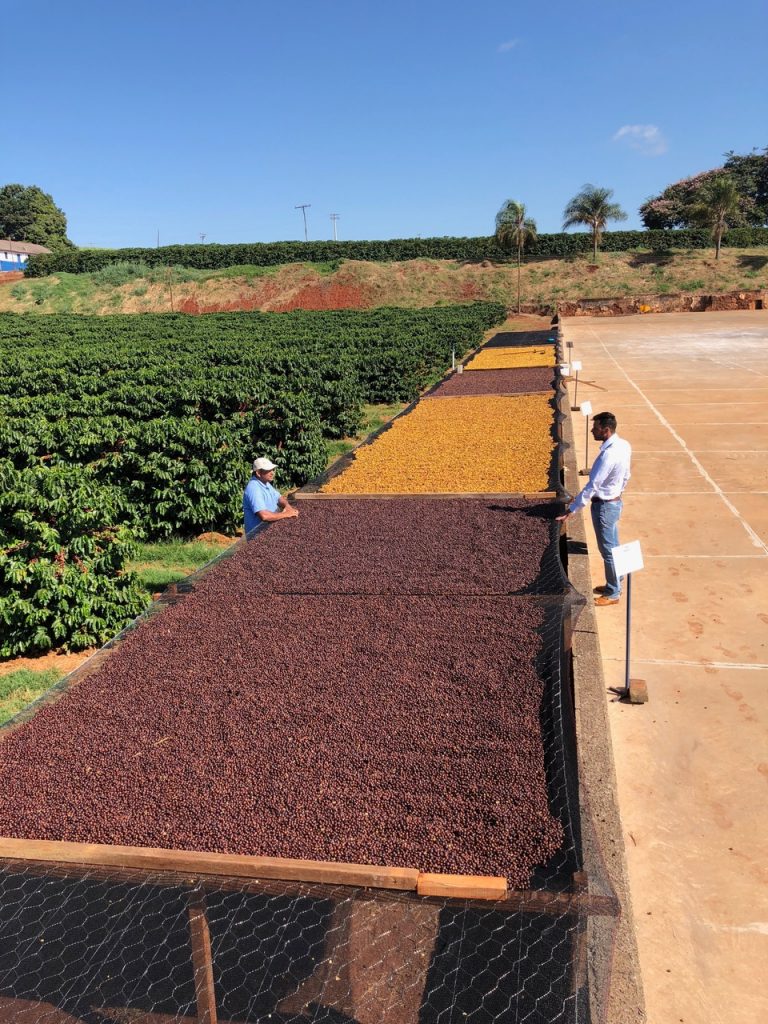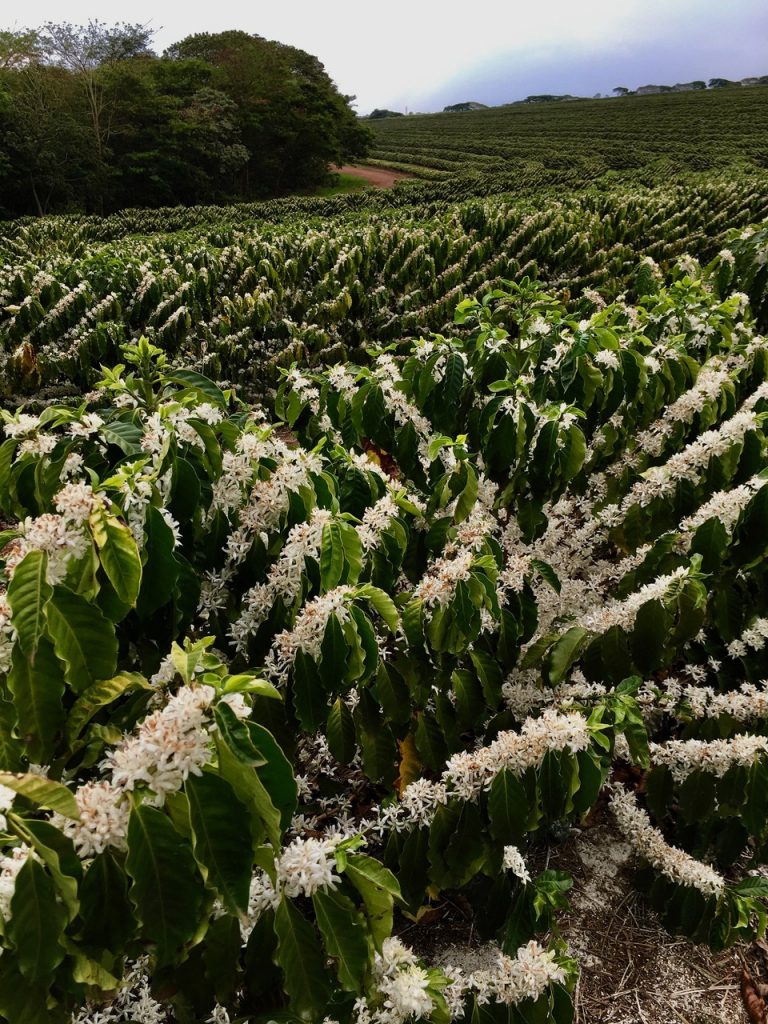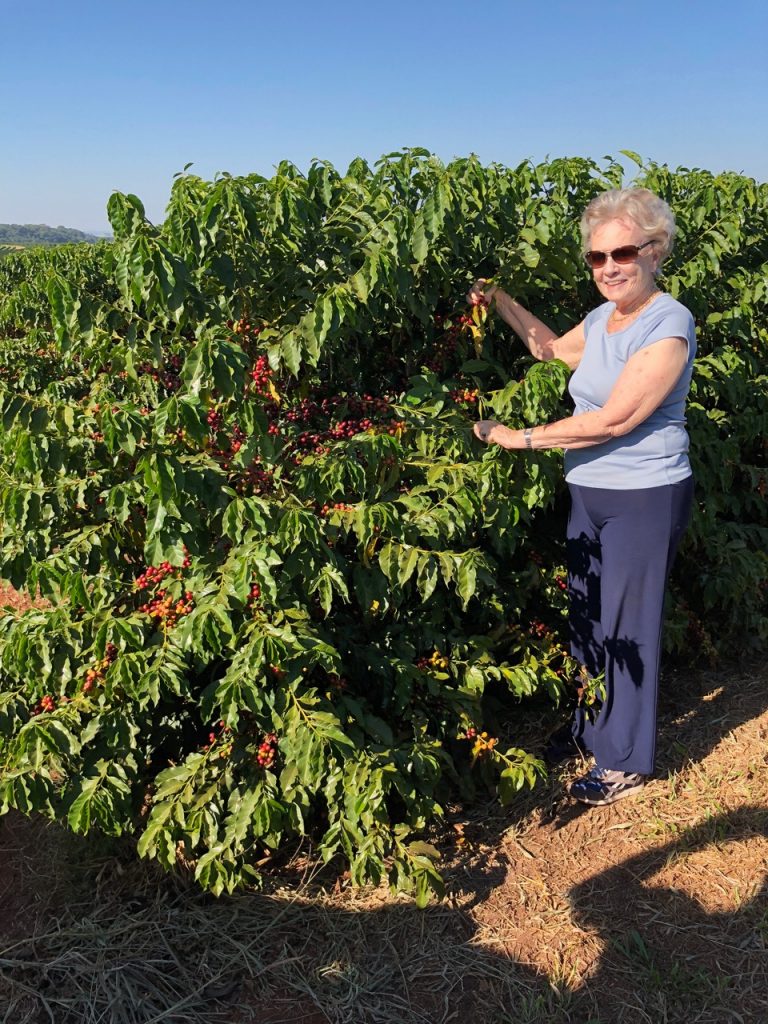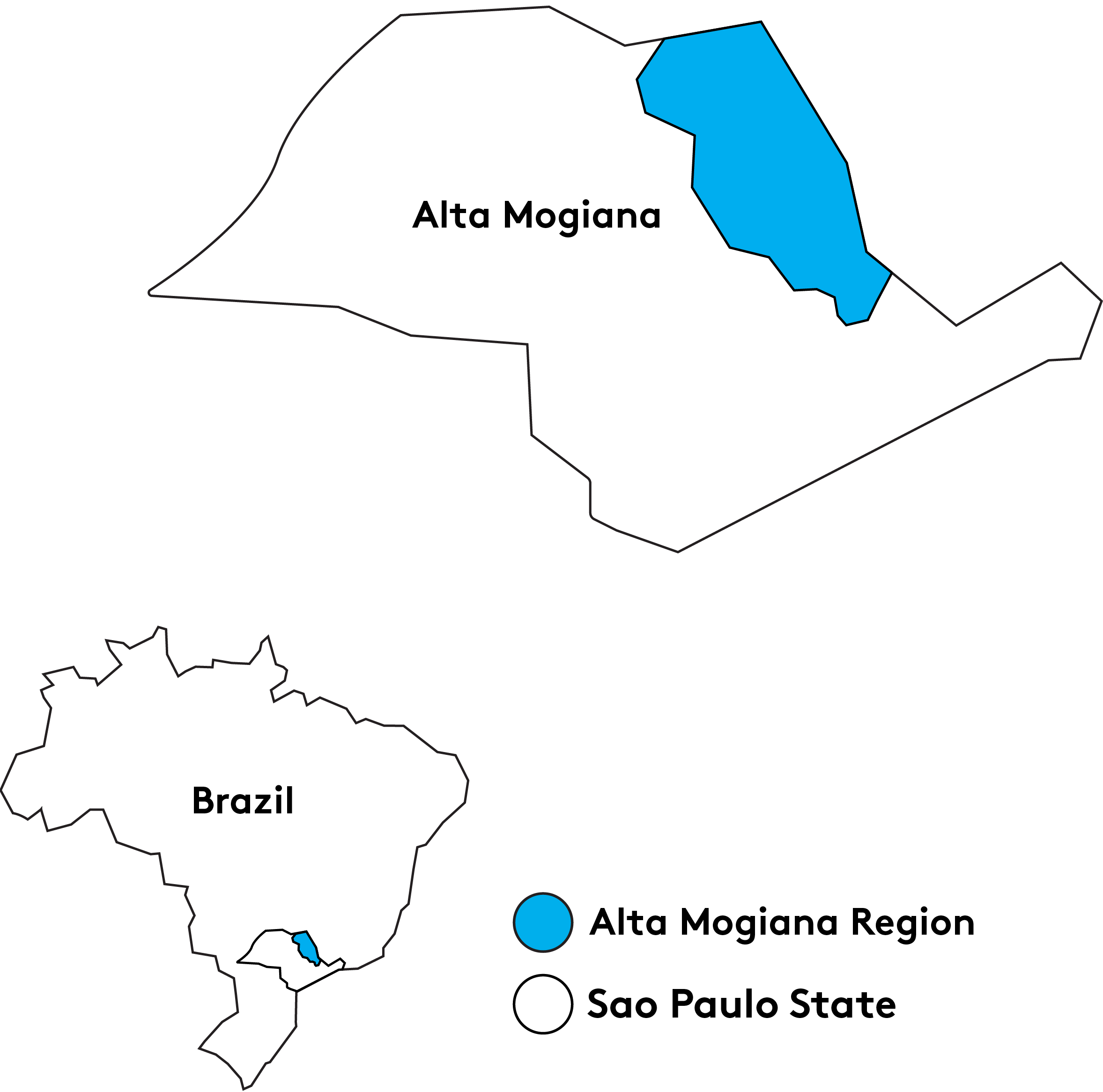Fazenda Morada da Prata is located in Batatais, 40km from Ribeirao Preto in the state of Sao Paulo with 1575 total hectares, more than 500 preserved as natural reserves and 149 planted with coffee. The fertile soil of the Alta Mogiana region and an elevation around 870 meters above sea level offers the ideal climate for producing specialty coffee. There are more than 550,000 coffee trees, mostly Bourbon, Mundo Novo, and Red Catuai varieties.
Fazenda Morada da Prata continues to broaden their production and invest in agricultural technologies, constantly perfecting the phases of production starting with strategic planting, varietal selection, plague control applications, variable nutrient applications, georeferencing, selective manual and mechanic harvest, drying on patios, raised beds, and modern Coolseed dryers, state of the art storage silos, and Pinhalense threshing equipment. This is all to look for the best specialty coffees Alta Mogiana has to offer.
In 2017 the farm won third place in the Alta Mogiana Specialty Coffee contest with a score of over 90 points. To achieve this level of coffee quality began back in 1879 when Henrique Dumont acquired Fazenda Arindeuva 20km from Ribeiro Preto in the state of Sao Paulo. There, Dumont invested in a series of production innovations converting the farm into one of the most modern in South America, with five million coffee trees, 96km of train rails, and seven locomotives, which earned him the reputation as “The King of Coffee.”
Henrique left the farm to his son Luis, who left it to his daughter Adelia, who passed it down to her daughter Maria Helena, now the fourth generation to manage the farm’s coffee production in addition to corn and soy. Due to economic pressures, the farm produced sugarcane for ethanol in the 80’s, but the return to coffee and establishment of natural reserves has squarely placed Fazenda Morada da Prata at the center of Brazil’s specialty coffee movement.



